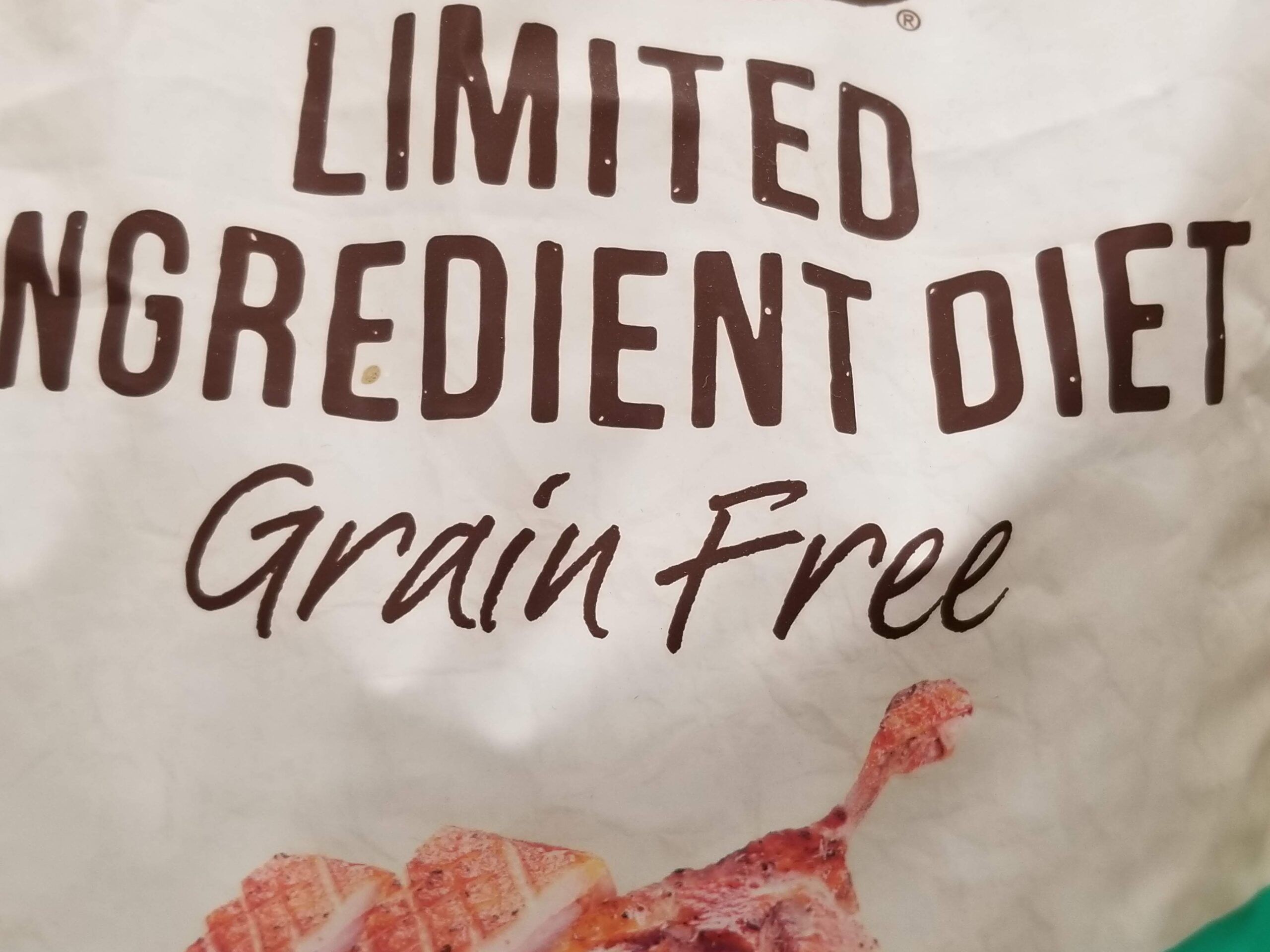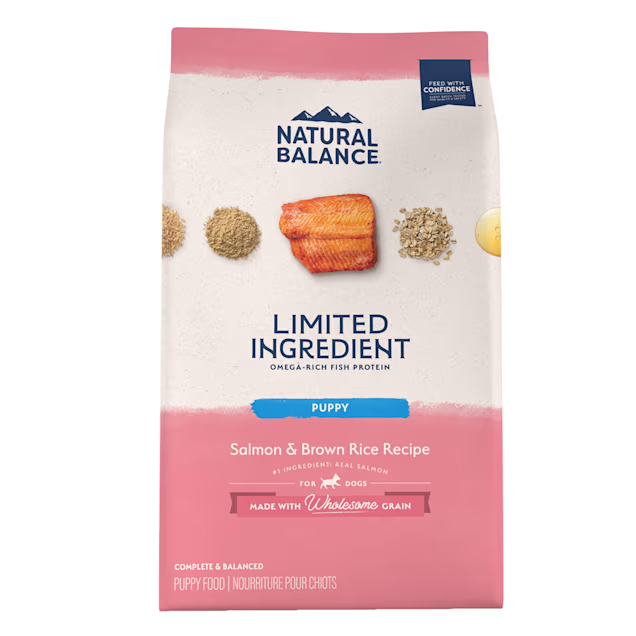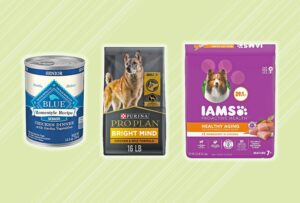The best limited ingredient dog food focuses on a few high-quality ingredients to minimize allergens and digestive issues. Brands like Blue Buffalo Basics and Wellness Simple provide excellent options for sensitive dogs.
Choosing the right dog food can be a daunting task, especially for dogs with food sensitivities. Limited ingredient diets help identify and eliminate allergens while offering essential nutrients. These formulas typically feature a single protein source and a few select carbohydrates, simplifying your dog's nutrition.
A limited ingredient diet can improve your pet's overall health and well-being. It’s crucial to select a product that meets your dog's unique needs. Considerations like age, size, and specific dietary restrictions play a significant role in making the best choice. Prioritize quality ingredients to ensure your furry friend thrives.
Table of Contents
ToggleIntroduction To Limited Ingredient Dog Food
Limited ingredient dog food is designed for dogs with specific dietary needs. It contains fewer ingredients to minimize the risk of allergies. Many pet owners choose this food to help their dogs thrive. Understanding this type of diet is important for your furry friend’s health.
The Rise Of Single Protein Diets
Single protein diets are becoming popular among dog owners. This diet focuses on one main protein source. Common proteins include:
- Chicken
- Beef
- Fish
- Lamb
Single protein diets help identify food sensitivities. They simplify meal planning for dogs with allergies. This approach supports a healthier digestive system.
Benefits For Dogs With Sensitivities
Limited ingredient diets offer various benefits for sensitive dogs. Key advantages include:
- Fewer Allergens: Reduced ingredients lower allergy risks.
- Better Digestion: Simplicity aids in digestion.
- Improved Skin Health: Less irritation from allergens.
- Weight Management: Controlled ingredients help maintain a healthy weight.
This type of food promotes overall well-being. Dogs with sensitivities can enjoy tasty meals without discomfort. Always consult a vet before changing your dog’s diet.
Identifying Food Allergies And Intolerances
Identifying food allergies and intolerances in dogs is crucial for their health. Dogs can react negatively to certain ingredients. Knowing the signs helps you choose the best limited ingredient dog food.
Common Symptoms In Dogs
Watch for these common symptoms of food allergies:
- Itching and scratching at the skin
- Ear infections that happen often
- Red or inflamed skin
- Vomiting after eating
- Diarrhea or soft stools
- Excessive gas and bloating
Symptoms can appear suddenly or develop over time. Always consult a veterinarian for a proper diagnosis.
The Elimination Diet Process
The elimination diet helps pinpoint food allergies. This process involves the following steps:
- Choose a limited ingredient dog food.
- Feed this diet exclusively for 8-12 weeks.
- Observe your dog for any symptom changes.
- Gradually introduce one new ingredient at a time.
- Monitor for any allergic reactions.
This method allows you to identify allergens effectively. Be patient; results may take time. Working with a vet ensures your dog’s nutritional needs are met.
Top Picks For Limited Ingredient Dog Food
Choosing the right dog food is essential for your furry friend. Limited ingredient dog food helps manage allergies and sensitivities. Here are some top picks that cater to your dog's needs.
Grain-free Options
Grain-free dog food is perfect for dogs with grain allergies. These options often use alternative carbohydrates. Here are some excellent choices:
- Blue Buffalo Basics – Contains turkey and potato. Great for sensitive stomachs.
- Wellness Simple – Features salmon and potato. High in Omega fatty acids.
- Merrick Limited Ingredient Diet – Offers lamb and sweet potato. Rich in protein.
These grain-free options ensure your dog gets the nutrition they need without harmful ingredients.
Single Source Protein Favorites
Single source protein dog foods are excellent for dogs with food sensitivities. They provide quality protein without mixing different sources. Here are some favorites:
- Canidae PURE Limited Ingredient – Made with bison. Ideal for dogs needing a single protein source.
- Nature’s Logic Canine Chicken Meal – Contains chicken meal. Packed with nutrients.
- Instinct Raw Boost Mixers – Features cage-free chicken. Easy to mix with other foods.
These options support your dog's health with minimal ingredients. Each choice delivers essential nutrients for active dogs.
Reading Dog Food Labels Like A Pro
Understanding dog food labels is key to choosing the best food. It helps pet owners make informed decisions. Reading labels ensures your dog gets the right nutrients. This guide will simplify the process for you.
Deciphering Ingredients
Ingredients are listed in order of weight. The first ingredient is the most important. Look for high-quality sources of protein. Common protein sources include:
- Chicken
- Beef
- Fish
- Lamb
Be cautious of vague terms like “meat meal.” These can be lower quality. Check for whole ingredients like fruits and vegetables. They provide essential vitamins and minerals.
Here’s a quick reference table of good and bad ingredients:
| Good Ingredients | Bad Ingredients |
|---|---|
| Whole meats | Meat by-products |
| Whole grains | Fillers |
| Fruits | Artificial colors |
| Vegetables | Preservatives |
Recognizing Fillers And Additives
Fillers and additives serve no nutritional purpose. They often bulk up the food. Common fillers include:
- Corn
- Wheat
- Soy
Avoid foods with too many fillers. They can lead to weight gain and health issues. Focus on foods with natural preservatives like:
- Vitamin E
- Vitamin C
Check for additives like artificial flavors and colors. These can harm your dog's health. Choose a food with simple, recognizable ingredients.
Reading labels helps you provide the best for your pet. Look for quality over quantity. Your dog deserves the best nutrition!
Homemade Vs. Store-bought
Choosing between homemade and store-bought limited ingredient dog food can be tough. Each option has its own advantages. Understanding these can help you make the best choice for your furry friend.
Benefits Of Homemade Diets
Many pet owners prefer homemade dog food for several reasons:
- Control over Ingredients: You know exactly what goes into your dog's food.
- Customization: Tailor meals to your dog's specific needs.
- Freshness: Homemade meals can be fresher than store-bought options.
- Allergies: You can avoid allergens that upset your dog's stomach.
Homemade diets can also strengthen the bond between you and your pet. Cooking for your dog shows love and care. Many owners enjoy this process.
Convenience Of Pre-made Foods
Store-bought limited ingredient dog food offers many conveniences:
- Time-Saving: No need to prepare meals every day.
- Consistency: Each batch has the same nutritional value.
- Variety: Many flavors and types are available.
- Easy Storage: Pre-packaged food is easy to store.
Pre-made foods often undergo strict quality control. Many brands provide balanced nutrition. This option is great for busy pet owners.

Credit: www.pinterest.com
Supplementing Limited Ingredient Diets
Limited ingredient diets (LIDs) help dogs with food sensitivities. These diets focus on fewer ingredients, reducing the chance of allergic reactions. However, they may lack some essential nutrients. Supplementing these diets can ensure your dog stays healthy and energetic.
Essential Vitamins And Nutrients
Vitamins and minerals are crucial for your dog's health. Here are key nutrients to consider:
| Nutrient | Benefits | Sources |
|---|---|---|
| Omega-3 Fatty Acids | Supports skin and coat health. | Fish oil, flaxseed oil |
| Probiotics | Aids digestion and gut health. | Yogurt, supplements |
| Calcium | Strengthens bones and teeth. | Bone meal, supplements |
| Vitamins A and E | Boosts immune function. | Carrots, spinach, fish |
Check the ingredients list on any supplement. Ensure they are safe and suitable for dogs.
When To Consult A Vet
Consult your vet before changing your dog's diet. Signs to watch for include:
- Persistent itching or scratching
- Digestive issues like diarrhea or vomiting
- Sudden weight loss or gain
- Low energy or lethargy
Your vet can recommend specific supplements. They may suggest blood tests to check nutrient levels. This helps create a balanced diet for your dog.
Success Stories
Many dog owners share incredible transformations after switching to limited ingredient dog food. These success stories highlight health improvements, happier pets, and peace of mind for their owners.
Real-life Improvements
Dog owners report significant health changes after choosing limited ingredient diets. Here are some common benefits:
- Reduced Allergies: Many dogs showed fewer allergy symptoms.
- Better Digestion: Owners noted less vomiting and diarrhea.
- Shinier Coats: Dogs often have healthier, shinier fur.
- Increased Energy: Pets displayed more energy and playfulness.
These improvements lead to happier pets and more satisfied owners.
Testimonials From Dog Owners
Here are some real testimonials from dog owners who made the switch:
| Owner Name | Dog's Name | Before Switching | After Switching |
|---|---|---|---|
| Sarah L. | Buddy | Frequent itching and ear infections | Clear skin and no infections |
| John D. | Rex | Digestive issues and low energy | Improved digestion and more playfulness |
| Emily T. | Max | Dry, flaky skin | Soft, shiny coat |
These testimonials show the positive impact of limited ingredient dog food. Owners appreciate the health benefits their pets experience. Each story highlights the importance of diet in a dog's well-being.

Credit: www.whole-dog-journal.com
Navigating The Market
Choosing the best limited ingredient dog food can be challenging. The market is flooded with options. Understanding your dog's needs helps narrow down the choices. Focus on quality ingredients and specific dietary requirements. This guide helps simplify the process.
Popular Brands Reviewed
Here are some well-known brands offering limited ingredient dog food:
| Brand | Main Ingredients | Key Features |
|---|---|---|
| Canidae | Chicken, peas, lentils | Grain-free, high protein |
| Blue Buffalo | Salmon, sweet potatoes | No artificial flavors, high-quality |
| Natural Balance | Duck, brown rice | Veterinarian approved, balanced nutrition |
| Hill's Science Diet | Lamb, rice | Prescription formula, digestive health |
Price Vs. Quality
Price and quality often go hand in hand. Higher-priced foods usually contain better ingredients. Here are some points to consider:
- Check the ingredient list first.
- Look for named meat sources.
- Avoid fillers like corn and soy.
- Consider your dog's specific needs.
Budget-friendly options exist, but read labels carefully. Some affordable brands may use lower-quality ingredients. Always prioritize your dog’s health over price. Investing in quality food can lead to better health outcomes.
Final Thoughts On Choosing The Right Food
Choosing the right dog food is crucial for your pet's health. Limited ingredient diets can help dogs with allergies or sensitivities. Pay attention to your dog's specific needs and dietary restrictions. A thoughtful selection promotes better health and energy levels.
Tailoring To Your Dog's Needs
Every dog is unique. Their dietary needs vary based on several factors:
- Age: Puppies, adults, and seniors have different nutritional needs.
- Weight: Obesity can lead to health issues. Choose low-calorie options if needed.
- Activity Level: Active dogs may need more protein.
- Health Conditions: Dogs with allergies or sensitivities benefit from limited ingredients.
Read ingredient labels carefully. Look for high-quality protein sources and avoid fillers. Common limited ingredients include:
| Ingredient Type | Examples |
|---|---|
| Protein | Chicken, Lamb, Fish |
| Carbohydrates | Sweet Potatoes, Brown Rice |
| Fats | Chicken Fat, Flaxseed Oil |
Transitioning Foods Safely
Switching dog food requires care. A sudden change can upset your dog's stomach. Follow these simple steps:
- Mix a small amount of new food with the old food.
- Gradually increase the new food amount over a week.
- Monitor your dog for any signs of discomfort.
Signs of an upset stomach include:
- Vomiting
- Diarrhea
- Lethargy
Consult your vet if issues arise. They can provide guidance tailored to your dog's needs.

Credit: www.petco.com
Frequently Asked Questions About Best Limited Ingredient Dog Food
What Is Limited Ingredient Dog Food?
Limited ingredient dog food is formulated with fewer components. This approach helps reduce the risk of food allergies and sensitivities. It typically contains a single protein source and a limited number of carbohydrates. This makes it ideal for dogs with specific dietary needs or those prone to allergies.
Why Choose Limited Ingredient Dog Food?
Choosing limited ingredient dog food can benefit dogs with allergies or sensitivities. These diets are easier to digest and help identify problematic ingredients. Additionally, they often promote a healthier coat and skin. This type of food ensures your dog receives essential nutrients without unnecessary fillers.
Is Limited Ingredient Dog Food Better For Dogs?
Limited ingredient dog food can be better for dogs with food sensitivities. It provides a focused nutrient profile that supports overall health. However, it’s essential to consult your veterinarian before making dietary changes. They can recommend the best options based on your dog’s specific health needs.
How To Choose The Best Limited Ingredient Dog Food?
To choose the best limited ingredient dog food, look for high-quality proteins. Ensure the food has minimal fillers and artificial additives. Check for essential nutrients and consider your dog's specific needs. Reading reviews and consulting with your vet can also guide your decision.
Conclusion
Choosing the best limited ingredient dog food can enhance your pet's health. These diets reduce allergens and promote better digestion. Always consult your vet before making changes. Prioritize high-quality ingredients for optimal nutrition. Your furry friend deserves the best. Invest in their well-being with the right food choices today.













